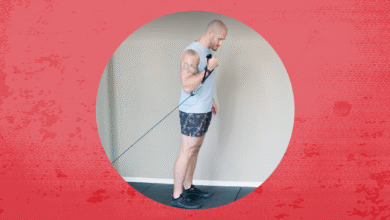Yes, Your Period Can Make Your Depression Worse. Here’s Why—And How To Cope

Experts don’t know exactly why some people with depression feel worse around the start of their period, but studies suggest their brains are unusually sensitive to normal hormone fluctuations—namely drops in estrogen and progesterone in that phase of the menstrual cycle, Tory Eisenlohr-Moul, PhD, director of the CLEAR Lab at the University of Illinois at Chicago, which studies how the menstrual cycle affects mental health, tells SELF.
“The majority of people who seek care for quote-unquote PMDD have chronic symptoms as well, and that speaks to the need to update this diagnosis to be more inclusive of those who experience worsened depression,” Dr. Eisenlohr-Moul says. “To have a diagnosis for PME at all would be a major step forward.”
How to feel a little better if your period makes your depression worse
If you have depression and a period, you may be vulnerable to PME, regardless of how severe your symptoms are. Here’s what you can do to feel a bit better and navigate the tricky conversations you might need to have with your health care provider about treatments.
1. Track your symptoms over several period cycles.
When Kay realized that something funky was going on, she committed to noting how she felt every day in a health diary. And experts say you should do the same. Documenting your symptoms for at least two months in a journal or app is the first step in knowing whether your period really is making your depression worse, Dr. Ross says.
Pay attention to when you feel more hopeless, less motivated to do things you love, or irrational when it comes to your interactions with others. Also log other factors: Are you eating more? Are you oversleeping? “These notes can give you concrete things to discuss with your medical provider,” says Dr. Ross, who’s also a clinical research scientist.
2. Be prepared to advocate for yourself.
You may hope your health care provider knows everything they need to help you, but the reality is they may not, especially when it comes to menstrual disorders, which are notoriously understudied. Kay, for example, has yet to find a doctor or therapist who knows what PME is; she learned about the disorder only after reading about it online. “Doctors just focus on whether my period is painful or not; they’re not very interested in what happens before it comes or after. And too often they’ll separate physical and mental health, but they’re so connected,” Kay says. “Not everything is all in our head.”
If you find that your go-to health professionals have no idea what you’re talking about or are trying to convince you that you’re just PMS’ing, stand your ground, Dr. Eisenlohr-Moul says: “If your doctor is still resistant, find anyone else. It could be a primary care provider, a gynecologist, a psychiatrist. It really doesn’t matter,” she continues. “What you’re looking for is somebody who is going to be receptive and listen.” The IAPMD offers a directory of providers who know about PME and other menstrual disorders if you need some help.
3. Continue or start to manage your depression.
If you’ve already found a treatment or two that makes you feel a little better (like a daily SSRI), stick with it, experts say, because as of now, there aren’t any options that are specifically approved to treat PME of depression. In other words, getting help for your underlying condition, whatever it is, will likely buffer the impact your period will have on it. So if you aren’t already tending to your depression, it may be time to start.



